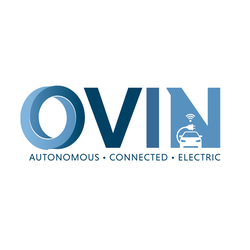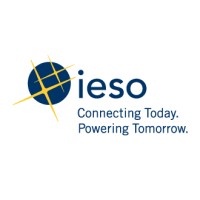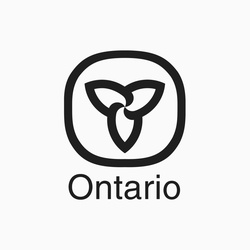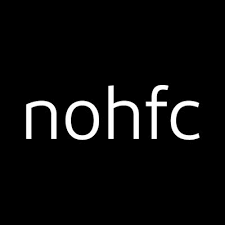
OVIN — Content Partnerships Program
At a glance
- Maximum amount : 100,000 $
- Closing date : February 15, 2024
- Manufacturing
- Transportation and warehousing
- Educational services
- Ontario
- Non-profit
- Public or Parapublic institution
- All revenue ranges
- All organization sizes
- All groups
- Higher Education
- Other Education
- Research
- Employment and Training
- Business Associations
- Professional Associations
- Diversity and Inclusion
- Business owners / entrepreneurs
- Academia / students
- All structures
- Provincial
Overview
The Ontario Vehicle Innovation Network (OVIN)’s Content Partnerships Program aims to develop and deliver Ontario-made micro-credentials for the automotive and mobility workforce, hosted on OVIN’s Uptooling Platform. Eligible applicants, including Ontario-based post-secondary institutions and non-profits, can apply for up to $50,000, or up to $100,000 for projects creating at least four interconnected micro-credentials, to support sector-specific upskilling through validated content reflecting industry needs.
Activities funded
This grant supports the development of micro-credentials designed to upskill the automotive and mobility workforce in Ontario. The eligible projects focus on creating content that aligns with industry needs and enhances learners' skills and career prospects in the sector.
- Creation of new micro-credential content focusing on the electrification of vehicles and related technologies.
- Modification and adaptation of existing content related to the automotive and mobility sectors.
- Development of learning content to support new online learners entering the automotive and mobility fields.
- Engagement with industry partners to validate the relevance and impact of the developed micro-credentials.
- Formulation of comprehensive reports outlining credential frameworks and addressing skills gaps within the industry.
- Incorporation of diverse learning styles and accessibility considerations in micro-credential design and delivery.
- Assessment of the impact of the developed micro-credentials on workforce skills and career trajectories.
Eligibility
Eligibility for this grant is determined by specific requirements related to the applicant's profile and their collaboration with industry partners.
- The applicant must be an accredited Ontario-based post-secondary education institution.
- Alternatively, the applicant may be another accredited institution creating micro-credentials or other courses.
- Ontario-based non-profit organizations that run sector-relevant education programs for the automotive and mobility workforce in Ontario are also eligible to apply.
Who is eligible?
The following entities are eligible to apply for the OVIN's Content Partnerships Program:- Accredited Ontario-based post-secondary education institutions.- Other accredited institutions creating micro-credentials or other courses.- Ontario-based non-profit organizations that run sector-relevant education programs for the automotive and mobility workforce in Ontario.These eligible applicants must work with Ontario-based industry partners in the automotive and mobility industry, including Original Equipment Manufacturers (OEMs), Tier 1 suppliers, and relevant industry associations, to validate and support the micro-credential development.Who is not eligible
This grant is primarily aimed at accredited institutions and non-profit organizations involved in developing sector-relevant educational programs. Industrial restrictions ensure alignment with the program objectives of upskilling the Ontario automotive and mobility workforce.
- For-profit corporations that are not involved in education development.
- Organizations outside of Ontario.
- Entities not capable of collaborating with industry partners to validate micro-credentials.
- Businesses lacking an automotive or mobility focus.
Eligible expenses
This grant supports the development of micro-credential content relevant to the automotive and mobility sectors in Ontario. Eligible projects aim to enhance workforce skills through targeted educational programs aligned with industry needs.
- Development of new micro-credentials tailored to the automotive and mobility sector, focusing on electrification and relevant skills.
- Modification of existing automotive and mobility-related content to align with current industry needs and standards.
- Creation of content to support new online learners in the automotive and mobility fields, ensuring accessibility and diversity.
- Conducting industry surveys and validations to ensure the relevance and impact of micro-credential content.
- Engagement with industry partners and advisory committees to guide the content development process.
- Development of final reports detailing frameworks, gaps, and accreditation guidelines for automotive training programs.
Eligible geographic areas
Eligible organizations applying for this grant must be based in Ontario. This requirement is in place to enhance and support the local automotive and mobility sector as part of the Ontario Vehicle Innovation Network’s objectives.
- Organizations located in Ontario, Canada.
Selection criteria
The evaluation and selection of projects for OVIN’s Content Partnerships Program are based on the criteria that ensure the proposed micro-credentials align with the program’s objectives and industry needs.
- Relevance and alignment to specific skills and competencies required by the automotive and mobility industry.
- Demonstrated need for the micro-credential through industry validation, including surveys and partner feedback.
- Incorporation of equity, diversity, and inclusion considerations in content development.
- Potential impact on the Ontario automotive and mobility workforce, including projected upskilling outcomes for a defined number of employees.
- Demonstrated use of OVIN’s Talent Strategy & Roadmap and Labour Market Data to inform design.
- Innovative approaches to content development and delivery that consider diverse learning styles and accessibility needs.
- Feasibility of implementing four inter-connected micro-credentials, if applicable, and the proposal's capacity to manage this scope effectively.
- Effectiveness of partnership engagement, and industry advisory committee input in the micro-credential development.
- Measurable against reported skills gaps, illustrating how the education will bridge current workforce challenges.
How to apply
Review Program Guidelines
Prepare Proposal
- Develop a comprehensive application proposal detailing your micro-credential project, objectives, and expected outcomes.
- Ensure your proposal includes industry validation and a plan for developing micro-credentials with input from industry partners.
- Gather supporting documents such as letters of support from industry partners and details of an industry advisory committee.
Conduct Environmental Scan
Submission via AccessOCI
- Register or log in to AccessOCI, the online portal for submitting your application.
- Complete and upload your full application package, including the proposal and all supporting documents.
Application Review
Attend Information Sessions (Optional)
Additional information
Miscellaneous information about the grant includes a variety of details ranging from eligible expenditures to monitoring and evaluation requirements.
- Costs directly attributable to the construction and necessary for the project completion are eligible.
- Salaries and statutory benefits for program support staff not exceeding $5,000 per month are eligible.
- Salaries must be claimed proportionally to the amount of time spent on project activities.
- Travel expenses must represent the most economical option and be project-related.
- Professional services such as consultant fees, audit, and insurance that assist in achieving the objectives are eligible.
- Costs not directly associated with meeting deliverables, such as ongoing production costs and personal expenses, are ineligible.
- Stream One focuses on Electrification and requires skills related to battery and charging technologies among others.
- Stream Two involves modifying existing automotive and mobility-related content for micro-credentials.
- Stream Three supports topics to set up members for success in online learning environments.
- Recommendations for course content updates should ensure relevance and implementation flexibility.
- Intellectual Property (IP) developed under the program will be owned by Ontario Centre of Innovation (OCI) or licensed to OCI.
- Program outcomes must include data collection strategies and measure satisfaction, mastery of skills, and industry engagement.
Frequently Asked Questions about the OVIN — Content Partnerships Program Program
What is the OVIN — Content Partnerships Program?
How much funding can be received?
Who is eligible for the OVIN — Content Partnerships Program program?
What expenses are eligible under OVIN — Content Partnerships Program?
Who can I contact for more information about the OVIN — Content Partnerships Program?
Where is the OVIN — Content Partnerships Program available?
Is the OVIN — Content Partnerships Program a grant, loan, or tax credit?
More programs like this

Expanded Energy Management Program
Independent Electricity System Operator (IESO)
REGI — Business Scale-up and Productivity (BSP) - Northern Ontario
Government of Canada
FedNor — Regional Tariff Response Initiative
Federal Economic Development Agency for Northern Ontario (FedNor)
Protect Ontario Financing Program
Government of Ontario
Ontario Anti-Hate Security and Prevention Grant (2025-26)
Government of Ontario
Ontario Made Manufacturing Investment Tax Credit (OMMITC)
Government of Ontario
INVEST North Program — Investment — Grow Stream
Government of Ontario
Regional Tariff Response Initiative (RTRI) — Northern Ontario
Federal Economic Development Agency for Northern Ontario (FedNor)
Regional Tariff Response Initiative (RTRI) — Southern Ontario
Federal Economic Development Agency for Southern Ontario (FedDev)